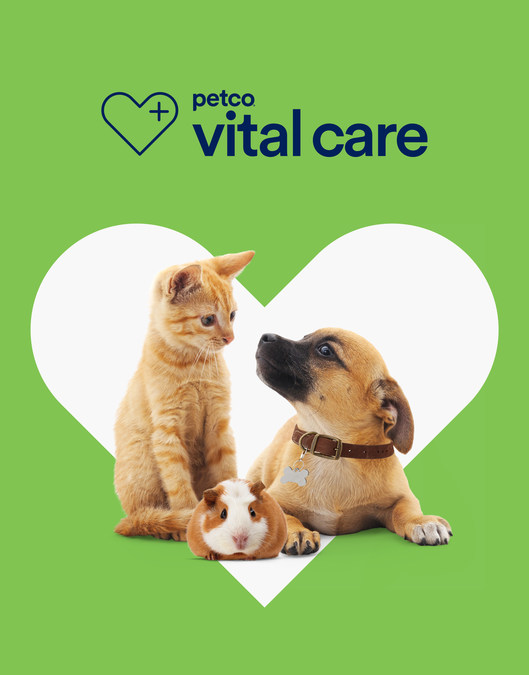The Most Effective Pet Grooming Practices to Maintain Your Pets Looking Their Finest
Comprehending Your Pet Dogs' Nutritional Requirements for Ideal Wellness

Value of Balanced Diets
Making certain a balanced diet for pet dogs is crucial for their overall health and wellness and wellness. Animals, like human beings, need a blend of healthy proteins, carbs, vitamins, minerals, and fats to maintain optimum health and wellness.
Including a variety of nutrients makes certain that pets maintain a durable immune system, healthy skin, and a glossy coat. A balanced diet can protect against a host of wellness issues such as weight problems, which is linked to diabetes mellitus and joint problems, or lack of nutrition, which can lead to developing delays and body organ disorder.
Pet dog proprietors have to bear in mind part sizes and caloric consumption, as overfeeding or underfeeding can have significant effects. Consulting with vets or pet nutritionists can aid customize diet regimens to fulfill certain requirements, guaranteeing that pets get the ideal equilibrium of nutrients needed for their dimension, age, and activity degree. A regular and well balanced diet plan is essential for an animal's longevity and happiness.
Species-Specific Nutritional Requirements
How do different types of animals have differing dietary needs? Each species has one-of-a-kind metabolic pathways, digestive system systems, and dietary demands that need to be fulfilled for ideal wellness.
Birds, relying on their species, may call for a diet regimen abundant in bugs, fruits, or seeds, highlighting the diversity within the bird globe. Pets. Reptiles, such as turtles and snakes, similarly need species-specific diet regimens, with some needing high degrees of calcium and others, a well-calibrated equilibrium of pests and plant matter
Failing to provide species-appropriate nutrition can lead to shortages or excesses, hindering wellness and longevity. Feeding a pet cat canine food could result in taurine shortage, leading to serious health problems such as heart condition. Understanding the nutritional distinctions among different types is essential for pet owners. By acknowledging and providing to these distinctions, we make sure the arrangement of appropriate nutrition, supporting the overall health and wellbeing and vigor of our animals.
Age and Size Considerations
While species-specific nutritional demands lay the structure for a pet dog's age, diet plan and size further fine-tune these needs. Young pets, such as puppies and kittens, call for diets rich in calories, proteins, and vital nutrients to sustain quick growth and development. These young creatures have greater metabolic rates and need more regular feedings to sustain their power levels and guarantee appropriate growth of bones, body organs, and muscular tissues.
Solutions designed for adult here pet dogs often focus on keeping weight, promoting digestive health and wellness, and sustaining an energetic way of life. On the other hand, elderly animals might benefit from specialized diets that deal with age-related challenges, such as joint health, cognitive function, and organ assistance.

Wellness Issues and Dietary Adjustments
Particular health and wellness conditions can dramatically influence the nutritional needs of family pets, demanding customized nutritional adjustments to support their well-being. For example, pets with diabetic issues may take advantage of diets that are high in fiber and reduced in straightforward carbs to aid manage blood sugar degrees. Overweight animals frequently call for reduced-calorie diets to advertise weight loss and stop affiliated health and wellness complications.
Animals with renal illness may need diet plans low in phosphorus and protein to alleviate additional reading kidney workload. Omega-3 fats, known for their anti-inflammatory properties, can be useful for pet dogs experiencing problems like joint inflammation or inflammatory digestive tract condition. Furthermore, animals with food allergies or intolerances may need hypoallergenic diet regimens, often needing a procedure of removal to determine and exclude offending ingredients.
Veterinary guidance is critical when making dietary adjustments, as wrong nourishment can exacerbate existing health issue or cause new ones. Normal monitoring and adjustments based upon the pet dog's action to nutritional adjustments are crucial. A well balanced technique, thinking about both dietary and medical needs, guarantees that nutritional interventions add favorably to taking care of wellness problems, improving not just the family pet's health and wellness however additionally their high quality of life.
Tips for Picking Quality Pet Dog Food
Selecting the right pet food is critical for guaranteeing your family pet's health and wellness and durability. A well balanced diet supports their immune system, maintains healthy and balanced weight and promotes total vitality. Begin by consulting your veterinarian to recognize your pet dog's specific dietary requirements based upon type, wellness, and age status.
When reviewing pet dog food, inspect the component list. High-grade pet dog foods commonly list genuine meat, chicken, or fish as the primary ingredient.
This suggests the food satisfies well established dietary requirements. Brands with a background of recalls or poor high quality control need to be come close to with caution.
Take into consideration whether your family pet would benefit from unique formulations such as grain-free, high-protein, or limited-ingredient diet plans. These can be useful for animals with allergies or particular health problems.
Final Thought
A thorough understanding of pets' nutritional requirements is vital for promoting their optimum wellness. By adhering to these principles, family pet proprietors can dramatically contribute to their pets' growth, energy levels, and total health and wellness, cultivating Home Page a better and much healthier life.

Choosing the right animal food is important for guaranteeing your family pet's wellness and durability. By adhering to these principles, animal owners can substantially add to their pets' growth, energy levels, and general wellness, fostering a better and healthier life.